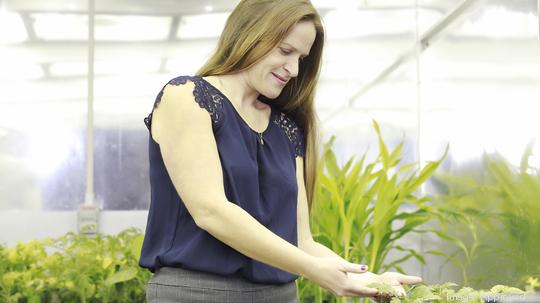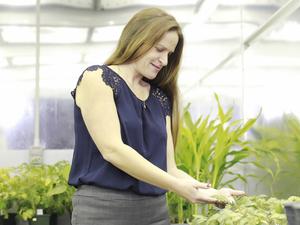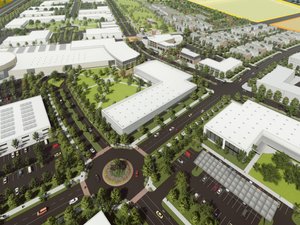
Davis-based seed technology company InnerPlant got $300,000 in funding to support its tests aboard a satellite to validate its signaling genetic technology in plants.
The funding is from the farmer-led United Soybean Board, which is overseen by the U.S. Department of Food and Agriculture.
“Providing data directly from plants at the scale required by modern agriculture will give farmers critical knowledge they need to protect yields while reducing inputs,” said Reza Bloomer, InnerPlant’s director of business development, in a news release. “The USB’s support shows their innovative and forward-thinking approach to ensuring that America’s soybean farmers have the best tools possible for their operations."
The United Soybean Board’s money is essentially a grant, said InnerPlant spokesman Sean Yokomizo. It is not a loan and the Soybean Board isn't receiving equity in InnerPlant.
A year ago, farm equipment giant John Deere, a subsidiary of Deere & Co. (NYSE: DE), led a $16 million funding round into InnerPlant.
When crops with traits developed by InnerPlant are in distress, they fluoresce in lighter images when viewed through a filter, whereas healthy plants remain dark. Plants fluoresce in different colors depending on the stressors, such as pest attachment, nutrient deficiency, lack of water or fungal pressure, which allows InnerPlant to determine a protocol to solve the problems.
Using satellite images, farmers can see exactly where to apply treatments, and it allows them to treat problems before they show up to the naked eye, he said.
In small applications, InnerPlant’s customers could use drones to find problem areas, but mostly it will be satellites.
“In South America, some of these farms are 50,000 acres. Ultimately, it has to be satellites. There aren’t enough man hours to fly drones over that,” Yokomizo said.
InnerPlant’s target crops are soy, corn and cotton, which are generally grown commercially on a massive scale.
InnerPlant’s interpretation of satellite images will ultimately be conveyed to a smart farm tractor, which will be able to pinpoint applications of fungicides, pest controls or fertilizers.
InnerPlant cites research that shows farmers lose as much as 20% of their yield to pathogens even as they tend to overapply pesticides by as much as 30%.
"The ability to detect crop pest stress from space as much as weeks before any stress is visible to the human eye is an innovation that will deliver massively" on the goals of the United Soybean Board "by helping us grow our soybeans more efficiently and sustainably," said Nancy Kavazanjian, a United Soybean Board farmer director, in a news release.
The satellite launch for InnerPlant’s test goes up in the first quarter next year, Yokomizo said.
In July, InnerPlant won USDA approval for its first commercial product, InnerSoy, which is a soybean plant that signals visually when it is under attack. The department’s Regulatory Status Review request approval means that the traits and plants are deemed to be safe to be used commercially.
InnerPlant was founded in 2018. It now has 28 employees, mostly working in research and development in Davis and greenhouses in Woodland.







